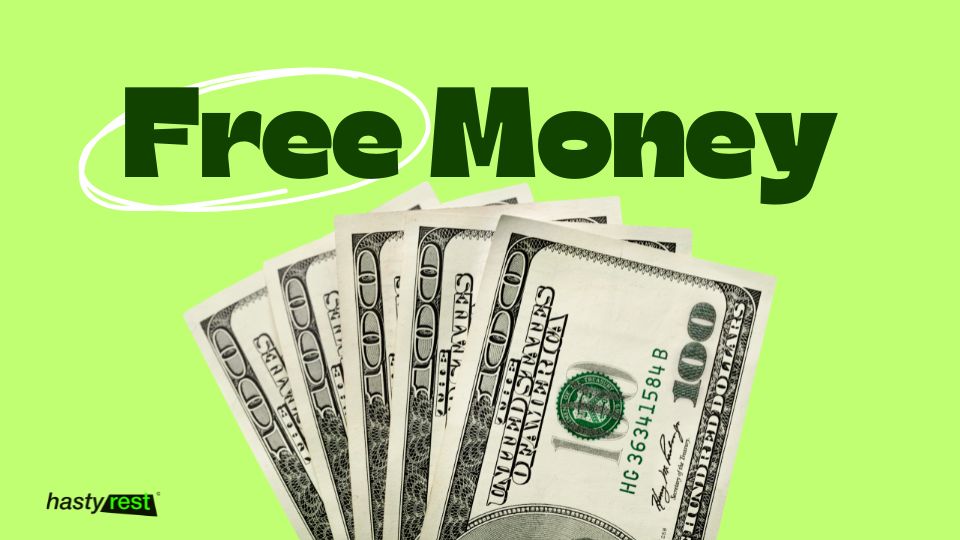What Happens When You Give People Free Money?

What Happens When You Give People Free Money?
Table of Contents
Introduction
OpenResearch recently released the results of the most comprehensive study on giving unrestricted cash grants to impoverished Americans. The findings are set to ignite both sides of the welfare debate. Sam Altman, CEO of OpenAI, spearheaded this decade-long effort to understand the impacts of handing out free money. The study revealed that providing some of the poorest Americans with $1,000 a month for three years led to a variety of outcomes, some expected, others surprising.
Background of the Study
The primary goal of the study was to evaluate the effects of unconditional cash grants on the lives of impoverished individuals. The research, funded by organizations including OpenAI and the US government, involved distributing $1,000 monthly payments from November 2020 to October 2023. A control group received $50 a month. Participants, aged 21 to 40, came from households earning about $30,000 annually across ten counties in Illinois and Texas.
Implementation of the Cash Grants
The study distributed funds without any conditions, aiming to provide participants with financial freedom to spend as they saw fit. Data collection was rigorous, involving surveys, credit reports, and blood tests to gauge various impacts.
Spending Habits of Recipients
Recipients primarily used the money to cover basic needs like food, housing, and transportation. Health care spending also saw an uptick, with more people affording dental braces and better stocking their refrigerators. Interestingly, many participants increased their charitable giving, spending an average of $22 more per month on helping relatives or gifting friends.
Economic Impact on Recipients
The infusion of cash had diverse economic effects. While recipients did increase their savings and initially felt better about their financial situation, their net worth did not significantly improve. Increased borrowing, often for car loans and mortgages, led to a rise in debt, which offset some of the financial benefits.
Social and Psychological Effects
The study noted various social and psychological benefits. Participants accessed more health care services and enjoyed greater personal satisfaction, often spending on leisure activities. Notably, entrepreneurial activity increased among certain groups, with Black recipients being 9% more likely to start or help start a business than those in the control group.
Case Studies and Personal Stories
Numerous success stories emerged from the study. For instance, one participant used the funds to start a small business, which now provides employment to several others in their community. However, there were also challenges, such as managing increased debt and navigating financial instability.
Critics and Concerns
Critics of welfare programs argue that such cash grants could discourage work and foster dependency. The study found a reduction in participants’ work hours, raising concerns about long-term employment motivation. Additionally, the increase in debt without corresponding improvements in financial health fueled skepticism.
Progressive Perspectives
On the other hand, progressive groups see unconditional cash grants as a viable solution to poverty. The study’s positive impacts, like better health care access and increased entrepreneurial ventures, support arguments for universal basic income. These findings suggest that such programs could empower individuals to make meaningful life choices.
Key Findings from the Study
The study’s statistical results are revealing. Recipients spent around 81 cents of each dollar on housing and basic needs, 22 cents on leisure, and took on more debt. However, the cash grants did not significantly improve their long-term financial positions, with mixed outcomes on physical health.
Comparative Analysis
Compared to other similar studies, OpenResearch’s findings highlight the complex nature of unconditional cash grants. Differences in outcomes were observed based on demographics, with variations in spending habits and economic benefits between regions and ethnic groups.
Policy Recommendations
The study suggests several policy recommendations. Future welfare programs might balance cash grants with other support measures, ensuring flexibility and personal agency. Policymakers should consider the varied impacts on recipients and design programs that address long-term financial stability.
Future Research Directions
While the study provides valuable insights, it also identifies gaps. Future research could explore long-term impacts, differences across broader demographics, and additional factors influencing financial health and well-being.
Conclusion
The OpenResearch study offers a nuanced view of unconditional cash grants. While the money provided short-term benefits and improved certain aspects of life, it did not substantially enhance long-term financial health. These findings will undoubtedly fuel ongoing debates over welfare and the role of universal basic income.
FAQs
- What was the purpose of the OpenResearch study?
The study aimed to evaluate the effects of unconditional cash grants on impoverished Americans’ lives. - How were participants selected?
Participants were selected from households earning about $30,000 annually across ten counties in Illinois and Texas, aged 21 to 40. - What were the main findings regarding spending habits?
Recipients primarily spent the money on basic needs, health care, and supporting others, with some funds going to leisure and increased debt. - Did the cash grants improve recipients’ financial health?
While recipients initially felt better about their financial situation, their long-term financial health did not significantly improve due to increased debt. - What are the policy implications of the study?
The study suggests balancing cash grants with other support measures and ensuring programs are flexible to address recipients’ diverse needs.






